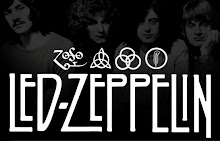Verbs!
Every word in the English Language is identified as a part of speech.
Like pieces to a puzzle, when put together in right order, shape sentences.
Verbs are one of the parts of speech that show action, show a state of being,
and inform us of the active voice.
the "to be" verbs:
am ,is, are, was, were, will be, being, and been
ex. i am happy when i perform on stage.
Laura is the main character
We are continuing to work hard for the playwrite.
Sheila will share her experiences in acting.
the "helping" verbs:
has, had, do, does, did, am, are, was, were, will, would ,shall, may,
mght, must, can, and could.
they combine with other verbs to form tenses.
Susan has only one scene to perform
Frank was having a stress attack
Justin shall allow my character to live
Jennifer must allow Terence to be himself
the "regular" verb
end their past and participle forms with d, ed, t, and en
the verb finish is: finished regular . . shop becomes shopped
accept becomes accepted
irregular verbs change the ending as they change tense:
there are many irregular verbs. to list a few:
awake becomes awoke or becomes awoken
bleed becomes bled
build becomes built
The active verb performs
The passive verb receives
active voice verbs are in 1st person
Please take your clothes to the cleaners - active
She took her clothes to the cleaners - passive
Linking verbs links subject to object.
Linking verbs may be transitive or intransitive
intransitive verbs do not require the subject to perform for an object.
example, fish die or Aaaron wept or Jerry laughed.
transitive verbs require an object
for example, Mr. J looks irritable
The island seems impossible to get to
I advised you to explore your options
Subscribe to:
Post Comments (Atom)

No comments:
Post a Comment